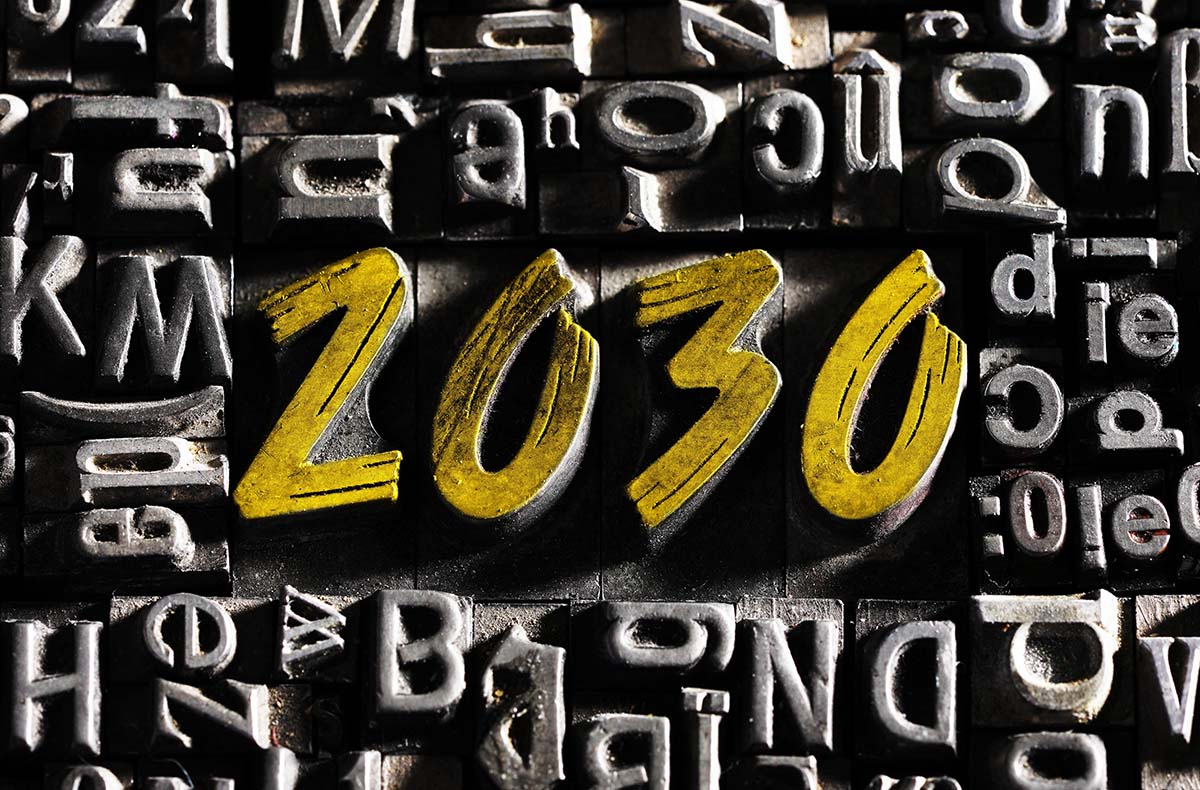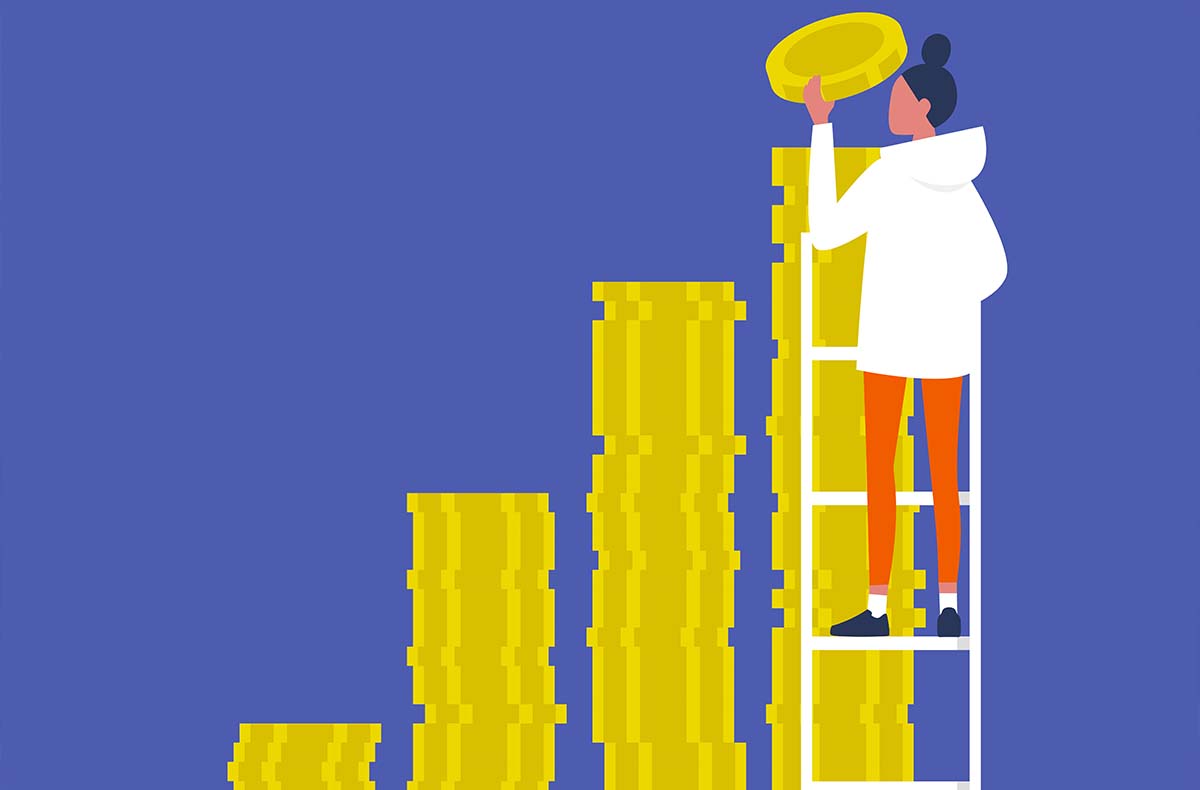
Recently, I’ve been hearing lots of talk around the Chinese approach to blockchain. A few talking heads have posited that China will be the country to manage and set the standards of our digital financial future. The assumption is, as the world’s most populous nation, China will always outcompete others.
While I emphatically disagree with this position, there is some truth to this argument, and it raises a bigger, more pressing question about blockchain’s future. We are heading into a global decentralized world, but in order to win the scale game that it undoubtedly is, you don’t need to be the biggest nation or most populous nation: you just need to get the majority of people living on this planet behind you.
As spokesperson of the blockchain representatives within the Digital Finance Forum at the Finance Ministry in Germany, I’ve been reflecting on what Europe’s role in a future token economy could look like—I know there are a slate of questions we cannot afford to ignore. Within my role, I’ve started reflecting on how we can push the boundaries and massively expand the scope for political leaders to take more action around cryptocurrency. The following is my vision of what Europe 2030 could look like if we realize a token economy, and what this could mean for Europe’s identity and competitiveness as a whole in our global future.
One of the biggest barriers to future progress is our natural myopia. People tend to speak from where they are in the present moment, but growing requires looking forward. To plan for the token economy, we need to first zoom out and acknowledge that the necessary advances in technology are happening: it’s growing, public opinion will change, and in ten years’ time, the infrastructure will be there. So instead of wringing our hands over smaller picture issues, we need to think bigger, towards the future.
To have a prosperous future in spite of all the odds, you have to start now. As the saying goes, “Never waste a good crisis.” Right now, things look dire, but there is no better time to create a grander vision for the next ten to fifteen years. Big changes don’t happen in stable times: why would they? But facing the political, economic, and social instability we’ve seen of late, we must embrace the fact that we can and should do better. Now is the time to turn to blockchain as a digital infrastructure that can protect us and transition to the token economy, where proof of stake allows a more efficient and sustainable future.
So what would a fully-realized token economy look like for Europe? First, at a macro level, it would completely shift the style of governance. As opposed to the Chinese model of blockchain, where people are assigned a wallet and their finances are highly surveilled and regulated, a digital decentralized infrastructure based on Western values would support individual freedoms and the prosperity of the people. Rather than being assigned a wallet, individuals would open up their own wallets, having ownership over their identities. This will create a new leitmotif for international politics, gathered around who can establish a decentralized, secure, and cost-effective infrastructure, creating a kind of “digital NATO.” As opposed to the opening argument, where the largest country would remain dominant, this is a different model of geopolitics, governed by competition for users. Instead of the largest nations bullying others into action, it would be about building a compelling business case for individuals to choose their blockchain. Scaling blockchain in a decentralized world ultimately depends on the number of users. This will bring a new angle to international politics: in the future, democracy isn’t set for the whole world, it would be spread by individuals choosing to participate.
As a system created by freely consenting sovereign individuals, Europe’s digital infrastructure and token economy would look vastly different from our current paradigm, which even at its most decentralized is still overseen by central entities. A future where we are owners of our own digital identities would create a less discriminatory and more efficient way to live, work and do business. On the most basic level, you’d see far less paperwork, as the blockchain would be secure and instantly verifiable. This would help overcome the demons of bureaucracy: there would be no need to carry a passport or five cards in your wallet, no lengthy KYC for financial transactions, no more lengthy registrations. Here, it would be a model of options, rather than a model of obligation. Without the need to grease the wheels of government, it would be a far fairer and faster process for getting permits, starting or closing businesses, and all of the usual headaches we deal with today. With the transparency of a digital infrastructure, Europe would have a level playing field, with less nationalism and tremendous prosperity with the amount of proaction it would support on an individual level.
So how do we get from where we are to this utopian vision? Essentially, we all first have to agree that we can and should do better. The systems under which we operate presently—namely the WTO and IMF—are cumbersome, antiquated bureaucracies that place economies on inherently uneven playing fields. This sort of obstacle course will melt away in a token economy. International trading could be enabled and executed via blockchain. The scale benefits of trading internationally effectively without borders would be so high that many would sign onto it if given the option. Just take our mail as an example: posting a letter from Germany to Canada involves a mail carrier, truck, maybe a plane, and many postmen. But sending an email is quicker, cheaper and much less burdensome. This is what trade will be like on blockchain.
This sort of change is deeper than simply amending current laws. This is a paradigm shift, not a cosmetic fix. Decentralization is a principle of organization that in big ways is very different from what we have now. We must start with constitutional values: we need to think of ourselves as the digital Founding Fathers. Given what we know the tech can do around identity, how payments can be made, and what a token can do to restructure societal and commercial bonds, we must create a political system based on the possibilities of a better world. We must shed ourselves of the way things were organized years ago if we want a tomorrow that suits or wants and needs.
If we continue on unchanged from how we operate today, we will have no chance at similar prosperity in our future. Right now, we’re in an undeniably terrible situation—especially in Germany, where we find ourselves paralyzed by the conflict in Ukraine, and completely dependent on Russian oil and gas. In a time like this, where we see how weak and vulnerable we are, this is the ideal opportunity to think big again and consider carefully how to overcome the ugly challenges we’re facing. If we don’t do something at a fundamental level now, we’re going to see a lot more instability and suffering to come. We need to unite behind a new common way of organizing peace and prosperity. Working towards a new digital infrastructure opens up the possibility of a bright future that is worth fighting for.
Historically, it’s always been this way, from the Reformation to the Revolutionary War. Without a daring utopian vision that people are willing to push towards through difficult moments, no progress would ever happen. But unlike other revolutions, which were fought in the streets, this is a peaceful one: a digital revolution, where we’ll use technology to bring out the best our civilization is capable of.
An open democracy is something we’ll have to figure out together. If we share the same purpose and all move in the same direction towards our future, we can align and work our way through it. I may not have all the answers, but I know that if we all resolve to move forward, we will find those together.



